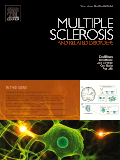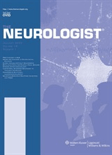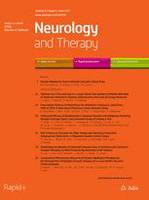
NEUROMUSCULAR DISORDERS
Scope & Guideline
Elevating the standard of care through scientific excellence.
Introduction
Aims and Scopes
- Genetic and Molecular Mechanisms:
Research on the genetic underpinnings of neuromuscular disorders, including identification of novel mutations and understanding their phenotypic implications. - Clinical Trials and Therapeutic Interventions:
Investigation of new treatment modalities, including gene therapies, pharmacological interventions, and their efficacy in clinical settings. - Diagnostic Approaches and Biomarkers:
Development and validation of diagnostic tools and biomarkers for early detection and monitoring of neuromuscular diseases. - Natural History Studies:
Longitudinal studies that track disease progression, clinical features, and outcomes in diverse patient populations. - Patient-Centered Research:
Focus on quality of life, psychosocial aspects, and patient-reported outcomes to inform clinical practices and improve care. - Multidisciplinary Approaches:
Integration of various specialties such as genetics, neurology, rehabilitation, and psychosocial support to address the complex needs of patients.
Trending and Emerging
- Gene Therapy and Advanced Therapeutics:
A surge in publications regarding gene therapy approaches, including innovative strategies for delivering therapies and assessing their long-term effects. - Patient-Centered Outcomes and Quality of Life:
Increasing emphasis on studies that explore patient-reported outcomes, quality of life, and the psychosocial impact of neuromuscular disorders. - Multimodal Imaging Techniques:
The integration of advanced imaging modalities, such as MRI and ultrasound, to assess muscle structure and function, providing valuable insights into disease progression. - Artificial Intelligence and Machine Learning:
Emerging interest in applying AI and machine learning techniques to analyze clinical data and improve diagnostic accuracy and treatment efficacy. - Natural History and Longitudinal Studies:
Growing focus on comprehensive natural history studies that track disease progression over time, contributing to a better understanding of various neuromuscular disorders. - Telemedicine and Remote Monitoring:
The rise of telemedicine and digital health tools for monitoring patients with neuromuscular disorders, especially highlighted during the COVID-19 pandemic.
Declining or Waning
- Traditional Electrophysiology:
The reliance on traditional electrophysiological studies has diminished as newer, more advanced diagnostic techniques, such as genetic testing and imaging, have gained prominence. - Basic Science Research:
There appears to be a decline in purely basic science research focused on muscle biology, as the journal increasingly emphasizes translational and clinical studies. - Descriptive Epidemiological Studies:
While still relevant, the frequency of purely descriptive studies on the epidemiology of neuromuscular disorders has decreased, with a shift towards studies that incorporate clinical outcomes and patient experiences. - Animal Models in Early Research:
The use of animal models for initial drug testing and understanding disease mechanisms is being overshadowed by human-centric studies and patient-derived models. - Single Disease Focus Publications:
There has been a waning interest in studies focusing solely on one specific neuromuscular disorder, as the journal increasingly seeks to address broader themes that encompass multiple disorders.
Similar Journals

Multiple Sclerosis and Related Disorders
Advancing knowledge in neurology and multiple sclerosis.Multiple Sclerosis and Related Disorders, published by Elsevier Science Ltd, is a leading journal that serves as a vital resource in the field of neurology, particularly focused on multiple sclerosis and its associated conditions. This esteemed journal, which holds a Q1 ranking in Medicine (miscellaneous) and Q2 ranking in both Neurology and Clinical Neurology, delivers high-impact research findings and clinical insights crucial for advancing the understanding and management of multiple sclerosis. With an ISSN of 2211-0348 and an E-ISSN of 2211-0356, it provides valuable content from 2012 to 2024 aimed at researchers, healthcare professionals, and students dedicated to improving patient outcomes and fostering innovative strategies in treatment. Additionally, the journal's presence in the Scopus rankings highlights its relevance and influence in the academic community, ranking 121 out of 400 in Clinical Neurology and 59 out of 192 in Neuroscience. This comprehensive platform encourages the dissemination of cutting-edge knowledge and clinical practices, making it an essential tool for those committed to the field of neurology and related research.

Open Access Rheumatology-Research and Reviews
Advancing Knowledge in Rheumatology, Open to All.Open Access Rheumatology-Research and Reviews, published by DOVE MEDICAL PRESS LTD, is a distinguished journal that has been a vital part of the rheumatology field since its inception in 2009. With an ISSN of 1179-156X, this journal is dedicated to disseminating groundbreaking research and comprehensive reviews in the discipline of rheumatology, making it an essential resource for researchers, clinicians, and students alike. It boasts an impressive Q3 ranking in the Rheumatology category for 2023, reflecting its relevance and quality within a highly competitive landscape, where it ranks in the 51st percentile among its peers as indicated by the Scopus Ranks. As an open-access platform, it ensures that critical findings and insights are easily accessible to a global audience, promoting collaboration and knowledge sharing. The journal's scope includes a wide range of topics within rheumatology, aimed at advancing understanding and treatment of musculoskeletal disorders and autoimmune diseases. Its headquarters is located in New Zealand, positioning it as a key player in the international research community.

NEUROLOGIST
Fostering a Rich Exchange of Neurological KnowledgeNEUROLOGIST, an esteemed journal published by Lippincott Williams & Wilkins, serves as a vital resource in the fields of Neurology and Medicine. With an ISSN of 1074-7931 and an E-ISSN of 2331-2637, this journal has been dedicated to advancing the understanding of neurological disorders since its inception in 1996, with continual contributions through 2024. Achieving a respectable Q3 rank in both Medicine (miscellaneous) and Neurology (clinical), it provides an essential platform for disseminating innovative research and clinical studies. Although it is not an open-access publication, NEUROLOGIST promotes a rich exchange of ideas and findings for researchers, healthcare professionals, and students alike, helping to bridge the gaps in neurological research and practice. The journal is recognized for its commitment to enhancing clinical practice and research methodology, making it a valuable asset for anyone engaged in the dynamic field of neurology.

NEUROGENETICS
Decoding Neural Pathways: The Genetic ConnectionNEUROGENETICS is a distinguished journal published by SPRINGER, focusing on the intersection of genetics and neuroscience. With its ISSN 1364-6745 and E-ISSN 1364-6753, this journal has been a vital resource in the fields of cellular and molecular neuroscience and genetics since its establishment in 1997. As of 2023, it is ranked Q3 in Cellular and Molecular Neuroscience and Q2 in both Genetics and Clinical Genetics, reflecting its growing influence and importance in these areas. Although not an open-access journal, it provides significant insights and research findings that contribute to advancing our understanding of genetic influences on neural function and disease. Based in Germany with an address at ONE NEW YORK PLAZA, SUITE 4600 , NEW YORK, NY 10004, UNITED STATES, NEUROGENETICS serves as a crucial platform for researchers, professionals, and students alike to explore innovative studies that are essential for the future of neuroscience and genetics. With its continuous commitment to high-quality research, the journal aims to foster collaboration and knowledge dissemination among the scientific community.

Neurology and Therapy
Unlocking Insights into Neurological Disorders and TreatmentsNeurology and Therapy, published by SPRINGER LONDON LTD, stands as a pivotal platform for researchers and practitioners in the field of neurology and its therapeutic applications. This Open Access journal, active since 2012, facilitates the dissemination of innovative studies and cutting-edge findings aimed at improving neurological health. With an impressive ranking in the 2023 Scopus Rankings, where it holds a Q2 category in Neurology and a Q1 category in Clinical Neurology, it underscores its prominence in advancing neurological research. The journal's intriguing scope encompasses a wide-ranging exploration of neurological disorders, treatment methodologies, and healthcare strategies, making it a valuable resource for those vested in enhancing patient outcomes. With an appealing average impact factor, readers are encouraged to dive into the latest advancements and engage with the scholarly discussions that are shaping the future of neurology.

PRACTICAL NEUROLOGY
Innovating Approaches to Neurological ConditionsPRACTICAL NEUROLOGY, published by the esteemed BMJ PUBLISHING GROUP, is a prominent journal in the fields of neurology and medicine, significantly impacting clinical practice since its inception in 2001. With an ISSN of 1474-7758 and an e-ISSN of 1474-7766, this UK-based journal reaches a diverse audience of researchers, clinicians, and students who seek to advance their understanding of neurological conditions and patient care strategies. Ranked in the second quartile (Q2) in both the miscellaneous medicine and clinical neurology categories for 2023, and positioned in the 47th percentile among its peers, PRACTICAL NEUROLOGY provides a platform for high-quality research that bridges the gap between laboratory findings and clinical applications. The journal's commitment to disseminating valuable information through peer-reviewed articles ensures that readers are equipped with the latest insights and practical knowledge necessary for improving outcomes in neurology. While access options are not currently open, the journal remains a vital resource for professionals striving to stay at the forefront of neurological research and clinical practice.

Neurology and Clinical Neuroscience
Pioneering insights into neurological disorders and treatments.Neurology and Clinical Neuroscience, published by WILEY, is a pivotal peer-reviewed journal dedicated to advancing knowledge in the fields of neurology and clinical neuroscience. With an ISSN of 2049-4173, it encompasses a diverse range of topics related to neurological disorders, offering a platform for groundbreaking research and clinical practices. Although the journal does not currently operate under an open access model, it aims to foster an inclusive academic environment by providing high-quality content that is accessible to both specialists and general practitioners in the medical community. Despite its relatively recent establishment from 2013 to 2024, the journal has gained recognition with Scopus rankings highlighting its role in clinical neurology and neuroscience spheres. It serves as an essential resource for researchers, professionals, and students seeking to expand their understanding and engage in current discussions surrounding neurological health and diseases.

JOURNAL OF ENDOCRINOLOGY
Transforming Knowledge into Practice in EndocrinologyJOURNAL OF ENDOCRINOLOGY, established in 1946 and published by BIOSCIENTIFICA LTD, stands as a premier scholarly outlet in the field of endocrinology, diabetes, and metabolism. With an impressive H-Index reflecting its significant contribution to the literature, this journal maintains a strong presence in academic circles, evidenced by its Q1 ranking in the 2023 Scopus categories for both Endocrinology and Diabetes and Metabolism. With its targeted scope serving a global audience of researchers, professionals, and students, it provides a vital platform for disseminating innovative research findings and advancing the scientific understanding of endocrine systems. As we approach its convergence year of 2024, JOURNAL OF ENDOCRINOLOGY remains committed to publishing high-quality, peer-reviewed articles that explore cutting-edge developments in the field, thereby impacting clinical practices and guiding future research directions.

Kidney Diseases
Transforming kidney health with cutting-edge discoveries.Kidney Diseases is an esteemed open-access journal published by KARGER that has been at the forefront of nephrology research since its inception in 2015. With an impressive Scopus ranking of #13 out of 81 in the field of Medicine Nephrology, placing it in the top 84th percentile, the journal has established itself as a vital resource for researchers, clinicians, and students interested in advancing knowledge on kidney health, disorders, and innovative treatment strategies. This journal aims to disseminate cutting-edge findings and clinical insights over a converged publication span from 2019 to 2024, fostering global collaboration and dialogue within the scientific community. With its commitment to open access, Kidney Diseases ensures that critical research is freely accessible, promoting wider dissemination of knowledge and the development of effective therapeutic interventions.

MUSCLE & NERVE
Exploring the Intersection of Physiology and NeuroscienceMUSCLE & NERVE is a prestigious journal dedicated to the exploration and advancement of knowledge in the fields of neurology, cellular and molecular neuroscience, and physiology. Published by Wiley, this journal has been a crucial resource for researchers and practitioners since its inception in 1978, with an impressive convergence of studies anticipated through 2024. With an Impact Factor reflecting its relevance and influence—ranking in the Q2 and Q3 quartiles across multiple categories, including clinical neurology and medical physiology—MUSCLE & NERVE offers a rigorous peer-reviewed platform for groundbreaking research. It holds a respected position in Scopus rankings, illustrating its commitment to excellence and innovation in medicine and neuroscience. As a non-open access journal, it provides valuable resources for professionals seeking to further their understanding of neuromuscular physiology and related disciplines. The journal aims to foster dialogue and disseminate knowledge that advances the field, making it an indispensable tool for academics and clinicians alike.